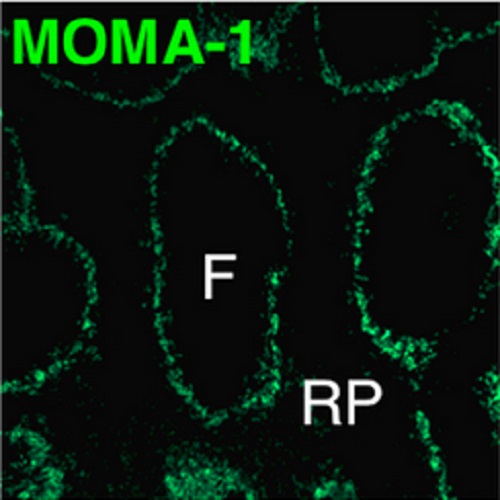SWAP-70 controls formation of the splenic marginal zone through regulating T1B-cell differentiation.
T1 and T2 transitional B cells are precursors for marginal zone B cells (MZB), which surround splenic follicles. MZB are essential for marginal zone formation, are central to the innate immune response, and contribute to adaptive immunity. Differentiation, migration, and homing of MZB and their precursors remain to be fully understood. We show that SWAP-70, a RhoGTPase-interacting and F-actin-binding protein with functions in cell polarization, migration, and adhesion regulates MZB development and marginal zone formation. The percentage of MZB in spleen of Swap70(-/-) mice was reduced to about one-third of that found in WT mice. Swap70(-/-) T1 cells accumulated in integrin ligand(high) regions of the splenic red pulp and failed to efficiently develop into T2 cells. Adoptive transfer and mixed BM chimera experiments demonstrated this to be a B-cell intrinsic phenotype. T-cell-independent antibody production was not impaired, however, and thus suggests that this process does not require correct homing of MZB precursors. B-cell adhesion through ?(L)?(2) and ?(4)?(1) integrins was hyper-activated in vitro and on tissue sections, and S1P-stimulated chemokinesis of MZB was reduced in the absence of SWAP-70. Thus, SWAP-70 acts as a regulator of the adhesion process, particularly important for differentiation control of B-cell precursors and their contribution to splenic tissue formation.

- Eur. J. Immunol. 2010 Dec 11;40(12):3544-56
- 2010
- Medical Biology
- 21108474
- PubMed
Enabled by:
